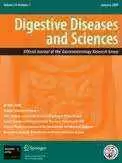Celiac.com 07/06/2016 - Is celiac disease a burden on your relationship? Many partners of celiacs say yes. Between thirty and forty-percent of people with celiac disease said that their condition was a burden on their relationship, according to a study presented at Digestive Disease Week 2016.
In his presentation at Digestive Disease Week 2016, Dr. Abhik Roy, gastroenterologist at New York-Presbyterian University Hospital of Columbia and Cornell, said that his team's recent study "...shows that partner burden is quite common in celiac disease with more than one-third of partners experiencing at least mild to moderate burden."
Celiac.com Sponsor (A12):
Partner burden had been previously reported in cases of irritable bowel syndrome and cancer, but had not been assessed in celiac disease, the researchers wrote.
To best measure the level of relationship burden in partners and patients with celiac disease, Roy and his colleagues at Columbia University Medical Center surveyed 94 patients, averaging 52.4 years of age, with biopsy-confirmed celiac disease. They also surveyed the partner of each patient. The patients had been with their current partner about 25 years. Patients were 98% white, 93% were college-educated, 85% married, and 65% had had celiac disease for more than 5 years.
Patients completed the Celiac Symptom Index (CSI) survey, to measure the extent of celiac disease, while their partners competed the Relationship Satisfaction (RS) scale, a measure of relationship quality.
Partners completed the Zarit Burden Interview (ZBI), which measures the level of partner burden, and answered questions about overall "sexual satisfaction."
Afterward, the researchers used the data from both portions of the study to assess the relationship between celiac disease and partner burden. When CSI scores were tallied, sixteen percent of celiac patients reported poor quality of life, with 37% reporting a ZBI score that indicated at least mild or moderate burden from celiac disease. At the same time, twenty-three percent of the partners reported an RS score associated with moderate-to-low relationship satisfaction, while 14% reported moderate-to-low sexual satisfaction.
Overall, the researchers found that ZBI score was associated with CSI score (P = .008) and that ZBI score was inversely associated with RS score (P < .001) as well as sexual satisfaction (P < .001). Basically, the lower the burden, the higher the basic relationship and sexual satisfaction, and vice versa.
Interestingly, partner's RS score (OR = 17.06; 95% CI, 2.88-101.09) and relationships over 10 years (OR = 14.42; 95% CI, 1.69-123.84) were both significantly associated with mild to moderate patient burden.
So, for those who do report being dissatisfied, the longer you're together, the more of an issue it seems to become. Also, half of partners report sometimes experiencing "feeling they should be doing more for the patient" and 44% reported that they sometimes experienced "feeling they could have done a better job for the patient." That shows a level of burden, but also a concern by partners for their loved one.
This study showed similar levels of dissatisfaction to those reported by IBS and cancer patients, the researchers noted. The research implies that patients might be helped by having health care providers address these relationship factors in their care of patients with celiac disease, and the team suggested as much.
One the upside, you could also say that the great majority of celiac patients and partners seem satisfied, and do no feel any burden from celiac disease. I wonder what the baseline scores for these tests are for non-celiac couples?
Read more at Open Original Shared Link.



.webp.cd6b8fedab0ff34c868a9360cdfecf66.webp)




Recommended Comments
There are no comments to display.